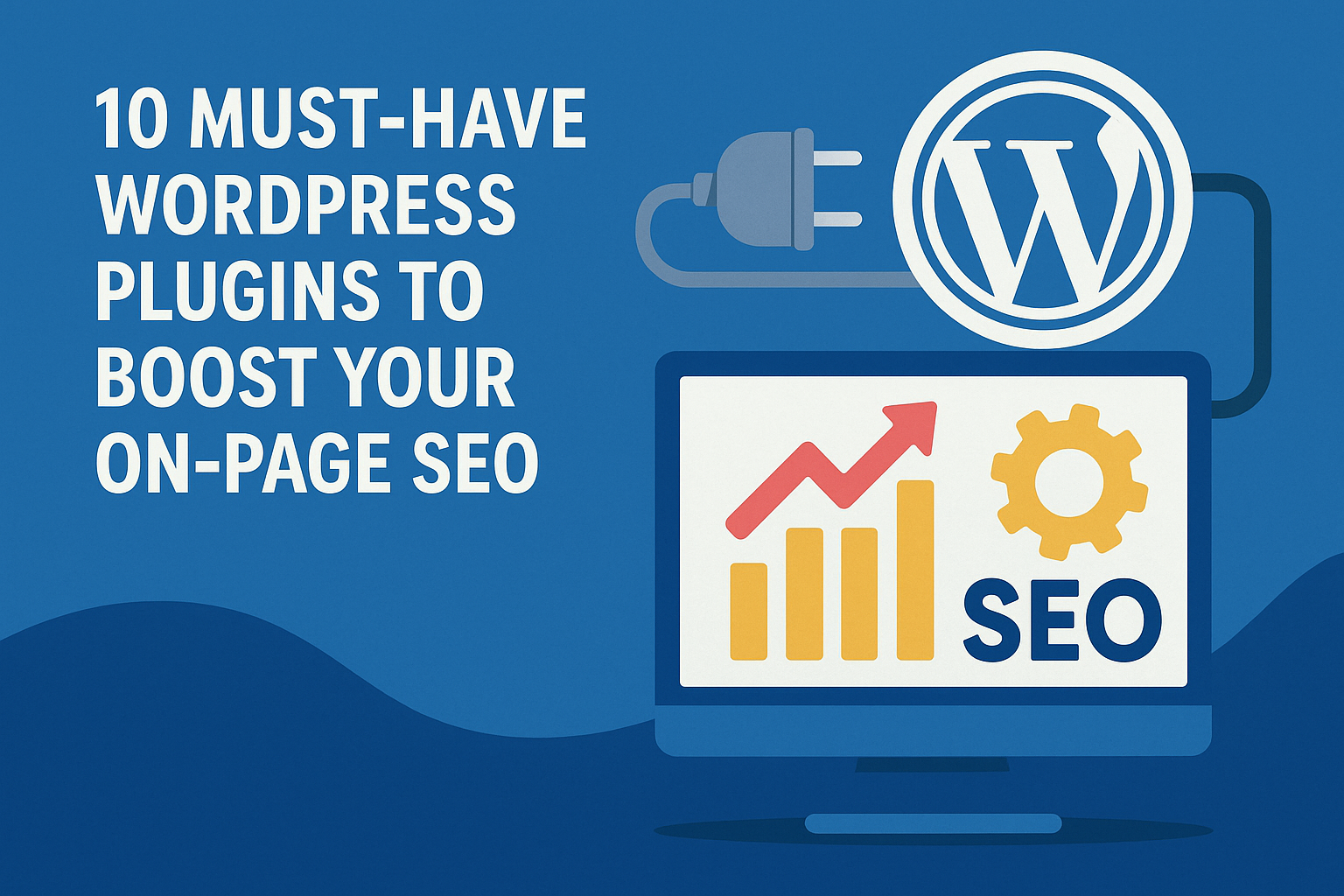Search engine optimization (SEO) remains one of the most important factors for driving traffic to your WordPress website. While off-page SEO, like backlinks, matters significantly, your on-page SEO lays the foundation. The good news is, WordPress offers a powerful ecosystem of plugins that can help you optimize every aspect of your on-page SEO.
1. Yoast SEO
Why It’s Essential: Yoast SEO is one of the most popular SEO plugins for WordPress, offering a wide range of tools to improve your content’s SEO. It provides real-time feedback as you write, helping you optimize meta tags, readability, and keyword usage.
Key Features:
- SEO analysis and readability check
- XML sitemap generation
- Breadcrumb navigation
- Open Graph metadata integration
2. Rank Math
Why It’s Essential: Rank Math is a powerful alternative to Yoast, offering deep SEO analysis and easy integration with Google services. It’s particularly known for its lightweight performance and modular features.
Key Features:
- Advanced on-page SEO suggestions
- Rich snippet schema markup
- 404 monitor and redirection manager
- Google Search Console integration
3. All in One SEO Pack
Why It’s Essential: One of the oldest SEO plugins, AIOSEO provides beginner-friendly options while also catering to advanced users. It streamlines your entire SEO workflow from meta tags to XML sitemaps.
Key Features:
- TruSEO on-page analysis
- Smart XML sitemaps
- Social media integration
- SEO audit checklist
4. SEOPress
Why It’s Essential: SEOPress is an affordable yet comprehensive SEO plugin for WordPress. It provides all the necessary features to optimize your content without cluttering your interface.
Key Features:
- Google Analytics integration
- Meta descriptions and titles optimization
- Image SEO tools
- Breadcrumbs and schema support
5. Schema Pro
Why It’s Essential: Schema markup helps search engines understand your content better. Schema Pro allows you to easily add structured data to your site without coding.
Key Features:
- Supports all schema types
- Automation features
- Integrates with Yoast and AIOSEO
- Enhances rich snippets for better CTR
6. WP Rocket
Why It’s Essential: Site speed is a ranking factor. WP Rocket is a caching plugin that boosts page loading speed, improving user experience and SEO.
Key Features:
- Page caching and GZIP compression
- Minification of CSS, HTML, and JavaScript
- Lazy loading of images
- Database optimization
7. Redirection
Why It’s Essential: Broken links can hurt SEO. Redirection helps manage 301 redirects and keeps track of 404 errors, ensuring that all your site’s links are SEO-friendly.
Key Features:
- Automatic URL redirection
- 404 error monitoring
- Regex-based redirect rules
- Import/export functionality
8. Smush
Why It’s Essential: Image optimization is crucial for page speed. Smush automatically compresses and optimizes your images without losing quality, improving both performance and SEO.
Key Features:
- Bulk image compression
- Lazy loading
- Resize and scale images
- Detects oversized images
9. Broken Link Checker
Why It’s Essential: Internal and external links impact SEO. Broken Link Checker scans your site and notifies you of any broken or redirected links, helping maintain link integrity.
Key Features:
- Monitors posts, pages, and comments
- Notifies via dashboard or email
- Inline editing of links
- Stops search engines from following broken links
10. Internal Link Juicer
Why It’s Essential: Internal linking is key to spreading link equity across your site. This plugin automatically builds internal links based on keywords you define, improving crawlability and SEO.
Key Features:
- Customizable linking behavior
- Blacklist and whitelist options
- Post type support
- Detailed link reports
Conclusion
Optimizing your WordPress site for on-page SEO doesn’t have to be overwhelming. With the right set of plugins, you can automate, simplify, and supercharge your SEO efforts. From improving meta tags and page speed to optimizing internal linking and image compression, these 10 plugins cover all the bases.
Choose the plugins that best fit your workflow and website goals. And remember, always keep your plugins updated and monitor performance to ensure your site remains optimized and fast.
Which plugin is your favorite for SEO? Let us know in the comments!


